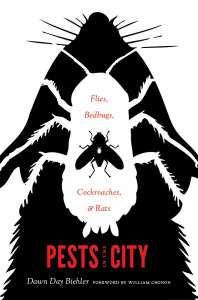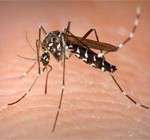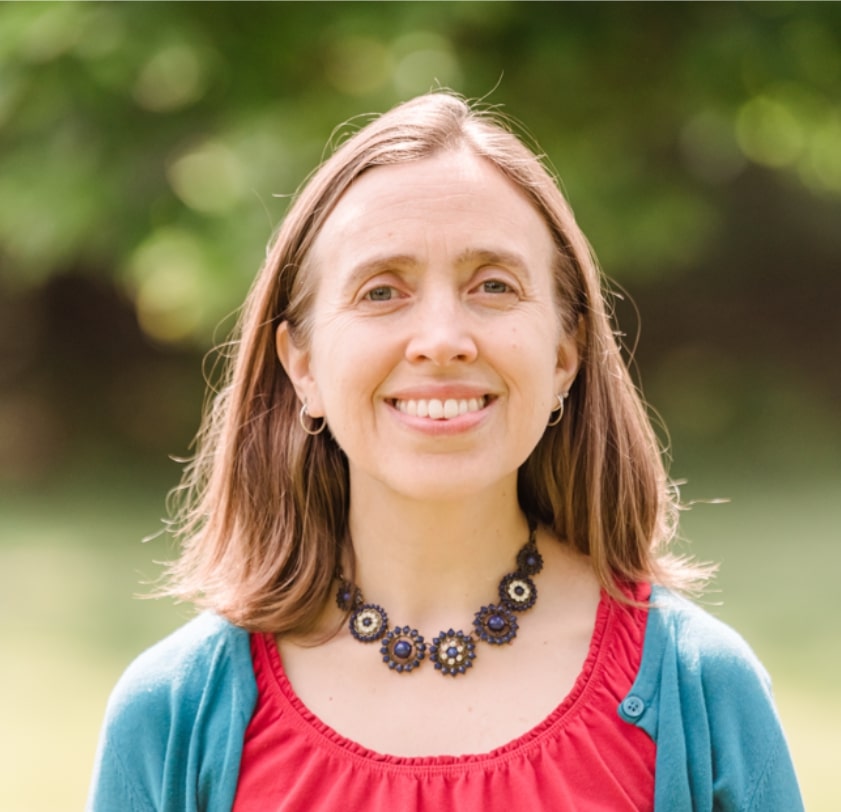Ph.D., University of Wisconsin – Madison, 2007
Associate Professor
211-L Sondheim Hall
410-455-2095
dbiehler@umbc.edu
Research Interests
Urban and feminist political ecology, urban environmental history, environmental justice, urban green space, housing justice, human-animal relationships, health geography, climate change
For a full publications list, find me on Google Scholar.
For recent media coverage related to Animating Central Park, please see my interview with Dr.
Miranda Melcher on the New Books Network podcast; my interview with Dr. Catherine McNeur
on the Gotham Center blog; and my Q&A with the UW Press blog.
Here’s my website about more-than-human geographical connections with Central Park!
Selected Research Activities and Publications
More-than-human urban public spaces
 Animating Central Park: A Multispecies History, traces the history of human-animal relationships in one of the United States’ most iconic urban green spaces from the 1850s through the 1970s. The book tells the story of how non-human animals, in relationship with diverse
Animating Central Park: A Multispecies History, traces the history of human-animal relationships in one of the United States’ most iconic urban green spaces from the 1850s through the 1970s. The book tells the story of how non-human animals, in relationship with diverse
human communities, struggled over public green space in New York City. Before Central Park, immigrant farmers and a thriving Black community forged a working agricultural landscape that they shared with horses, goats, pigs, cows, and dogs. In the 1850s, elites displaced these multispecies communities with a new kind of “animated” landscape. In contrast with the livestock that for a time roamed here, or the deer and turkey hunted by Lenape people for thousands of years, Central Park’s new animal community was gathered there by Park authorities and donors to represent country farms, European birds and livestock, and American wildlife whose populations were diminished by urbanization and overland empire. Over the Park’s first one hundred years, bird-lovers, fishers, equestrians, amateur and professional scientists, dog people, and zoo-goers of diverse identities claimed space in Central Park through their relationships with animals. Yet these animated spaces became contested sites as immigrants, people of color, queer folks, and children showed that there were many different ways to love and value urban creatures. Animating Central Park embraces the joys and ecological possibilities of animated urban spaces, but ultimately shows that urban parks cannot be disconnected from social injustice and threats to more-than-human life in the world beyond.
2024 Biehler, D. Animating Central Park: A Multispecies History. Seattle: University of Washington Press. With foreword by editor Paul Sutter.
Buy Animating Central Park here!
Environmental justice and community ecologies in Baltimore
My work on the historical geography of more-than-human Central Park, combined with my research on mosquitoes and environmental justice (described below), have helped shape further research in Baltimore, especially in projects by and with undergraduate and graduate students. Much of this work involves public participation and strives to engage communities in telling their stories and driving research questions. Recent students have worked on political ecologies and environmental histories of tree care; the role of Black churches in environmental stewardship and participatory environmental science; Black geographies approaches to disaster planning and resilience; and historical geographies of waste production.
Unwanted animals, housing geographies, and environmental justice
 My first scholarly book, Pests in the City: Flies, Bedbugs, Cockroaches, and Rats, was published in 2013 by University of Washington Press. The book explores the public health implications of domestic pests and pest control in US cities since 1900. It argues that health authorities have too often treated pest infestation as an isolated problem and a “private,” apolitical matter, rather than a political problem connected ecologically with a variety of social and environmental injustices. The book tells stories about scientists, health and housing officials, and housing residents who struggled over the management of nature and healthy neighborhood environments. My research reveals that racial and economic injustice, along with gender performances in urban and domestic space, have shaped pest ecology, pesticide exposure, and strategies for living with urban nature. The research led to additional journal articles and a book chapter along with the book.
My first scholarly book, Pests in the City: Flies, Bedbugs, Cockroaches, and Rats, was published in 2013 by University of Washington Press. The book explores the public health implications of domestic pests and pest control in US cities since 1900. It argues that health authorities have too often treated pest infestation as an isolated problem and a “private,” apolitical matter, rather than a political problem connected ecologically with a variety of social and environmental injustices. The book tells stories about scientists, health and housing officials, and housing residents who struggled over the management of nature and healthy neighborhood environments. My research reveals that racial and economic injustice, along with gender performances in urban and domestic space, have shaped pest ecology, pesticide exposure, and strategies for living with urban nature. The research led to additional journal articles and a book chapter along with the book.
2018 Biehler, D. “Unruly Domestic Environments: Do-It-Yourself Pesticides, Gender, and Regulation in Post-World War II Homes.” In Geoffrey Buckley and Yolonda Youngs (Ed.), The American Environment, Revisited. Lanham, MD: Rowman and Littlefield.
2013 Biehler, D. Pests in the City: Flies, Bedbugs, Cockroaches, and Rats. Seattle: University of Washington Press. With foreword by editor William Cronon.
2010 Biehler, D., and Simon, G. “The great indoors: Research frontiers on indoor environments as active political ecological spaces.” Progress in Human Geography 35: 172-192.
2010 Biehler, D. “Flies, manure, and window screens: medical entomology and environmental reform in early-twentieth-century US cities.” Journal of Historical Geography 36: 68-78.
2009 Biehler, D. “Permeable homes: A historical political ecology of insects and pesticides in US public housing.” Geoforum 40: 1014-1023.
Urban mosquito ecologies, public and private space, and environmental injustice
 My historical investigations for Pests in the City led me into another project focused on pests in the urban environment in the present day. I took part in a multi-disciplinary team studying mosquito ecology and resident perspectives on environmental hazards in Washington, DC, and Baltimore. We used ecological sampling, household surveys, PhotoVoice, focus groups, and participatory activities The project developed a participatory science project that sought to empower residents to demand better environmental services in their neighborhoods. In the neighborhoods where we are working, mosquitoes are connected to a suite of other social and environmental struggles, including formal disinvestment, abandoned properties, illegal dumping, inadequate trash collection, and unmanaged vegetation.
My historical investigations for Pests in the City led me into another project focused on pests in the urban environment in the present day. I took part in a multi-disciplinary team studying mosquito ecology and resident perspectives on environmental hazards in Washington, DC, and Baltimore. We used ecological sampling, household surveys, PhotoVoice, focus groups, and participatory activities The project developed a participatory science project that sought to empower residents to demand better environmental services in their neighborhoods. In the neighborhoods where we are working, mosquitoes are connected to a suite of other social and environmental struggles, including formal disinvestment, abandoned properties, illegal dumping, inadequate trash collection, and unmanaged vegetation.
2025 Biehler, D., LaDeau, S., Baker, J., Bode-George, Y., Pitas, JH, Jordan, R. C., Leisnham, P.,
Wilson, S. Segregation Histories, Wealth, and Community Engagement Shape Inequitable
Burdens of Urban Greening. Annals of the American Association of Geographers 115 (2025):
513-534.
2019 Biehler, D., Leisnham, P., LaDeau, S., Bodner, D. Knowing nature and community through mosquitoes: Lay vector ecologies as guides for participation in management. Local Environment 24: 1119-1135.
2019 Sorensen, A.E., Jordan, R.C., LaDeau, S.L., Biehler, D., Wilson, S., Pitas, J H and Leisnham, P.T. Reflecting on Efforts to Design an Inclusive Citizen Science Project in West Baltimore. Citizen Science: Theory and Practice, 4(1).
2018 D. Biehler, Baker, J., Pitas, J H, Bode-George, Y., Jordan, R., Sorensen, A. E., Wilson, S., Goodman, H., Saunders, M., Bodner, D., Leisnham, P., LaDeau, S. “Beyond ‘the mosquito people’: The challenges of engaging community for environmental justice in infested urban spaces.” In Lave, Rebecca (Ed.), Handbook of Critical Physical Geography. London: Palgrave.
2017 Little, E., Biehler, D., Leisnham, P. T., Jordan, R., Wilson, S., LaDeau, S. Socio-Ecological Mechanisms Supporting High Densities of Aedes albopictus (Diptera: Culicidae) in Baltimore, MD. Journal of Medical Entomology, 54: 1183–1192. https://academic.oup.com/jme/article-abstract/54/5/1183/3859807?redirectedFrom=fulltext
2016 Bodner, D., LaDeau, S., Biehler, D., Kirchoff, N., and Leisnham, P. “Effectiveness of passive education intervention at reducing urban mosquito infestation through improved resident-based management.” PLoS One 11.
2016 Jordan, R., Gray, S., Sorensen, A., Newman, G., Mellor, D., Newman, G., Hmelo-Silver, C., LaDeau, S., Biehler, D., Crall, A. “Studying citizen science through adaptive management and learning feedbacks as mechanisms for improving conservation.” Conservation Biology 30: 487–495.
2013 Dowling, Z., LaDeau, S., Armbruster, P., Biehler, D., Leisnham, P. “Socioeconomic status affects mosquito (Diptera: Culicidae) larval habitat type availability and infestation level.” Journal of Medical Entomology 50: 764-72.
2013 LaDeau, S., Leisnham, P., Biehler, D., Bodner, D. “Higher mosquito production in low-income neighborhoods of Baltimore and Washington DC: Understanding the (re)emergence of mosquito-borne disease risk in temperate cities.” International Journal of Environmental Research and Public Health 10: 1505-1526.
Prospective Students
I welcome prospective graduate students and undergraduate researchers to reach out to me at dbiehler@umbc.edu. I am interested in working with students employing qualitative or mixed methods to study urban and feminist political ecology, more-than-human geographies, environmental justice, health justice, environmental history, and related areas.
Students Advised
Nyla Howell, BA, 2024 (Undergraduate Research Award)
Rylee Wernoch, MS, 2024 (advisor)
J H Pitas, PhD, 2023; MS, 2016 (advisor)
Christopher Blume, MS, 2023 (co-advisor)
Bergren Cliff, MS, 2022 (co-advisor)
Mariya Shcheglovitova, PhD, 2020 (co-advisor)
Joel Baker, MS, 2019 (advisor)
Amanda Davis, PhD, 2016 (co-advisor)
Tiff Branum, MS, 2014 (advisor)
Yvette Williams, PhD, 2013 (advisor)
Meridel Newton, MS, 2013 (co-advisor)
Michael Wissner, MS, 2012 (advisor)
Courses Taught
- GES 102: People, Place, and Environment: A Global Geographic Perspective
- GES/PBHL 329: Geographies of Health and Disease
- GES/GWST 347: Gender, Race, and Space
- GES 350: Climate Change and Society in Maryland
- GES 424/624: Environmental Justice
- GES/PBHL 429/629: Seminar in Geographies of Health and Disease
- GES 431/600: Animals & Society
- GES 700: Graduate Seminar in GES (example topic, 2022: Environment and Power)
- GES 701: Introduction to Geography and Environmental Systems (new graduate student workshop)
